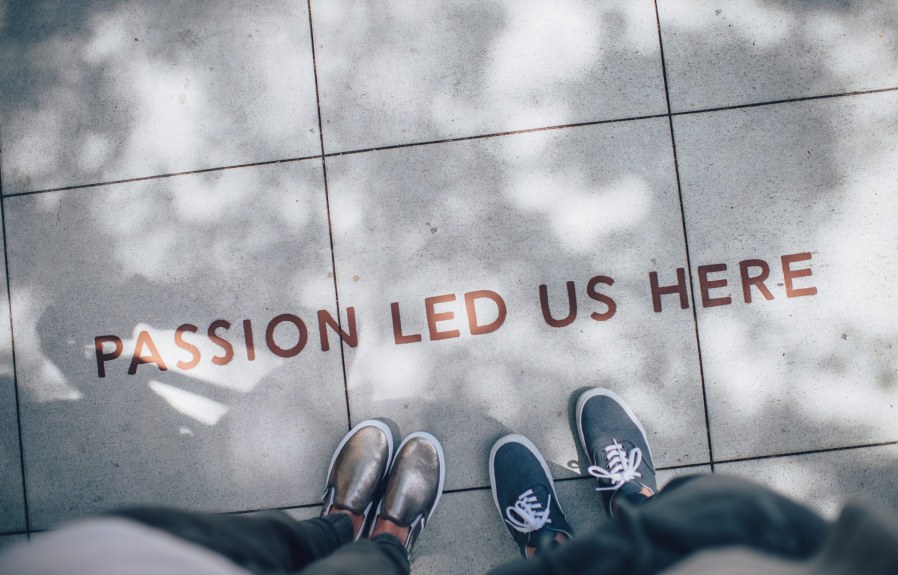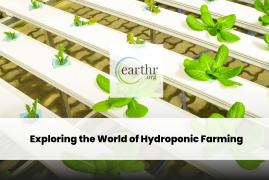Businesses, pushed on by industry competition and the global priority on economic growth, have been the major culprit in Mother Nature’s destruction.
Corporations’ environmental policies have not been much more than lip-service – charity trusts, donation pledges, or “we plant a tree for every purchase” offers that remain ineffectual gimmicks unconnected to the core of their business models.
However, as consumers are becoming aware, they are making active choices to buy from more responsible companies. Businesses are being held accountable for their carbon footprints, so they need to start using technology to fundamentally transform traditional industry practices and positively brand themselves to consumers.
By changing the core of their practices, businesses are integrating sustainable values and simultaneously cutting production costs.
From providing sustainable products and subdised services without compromising the quality of the services to recycling, there seems to be a universal effort by companies and startups, to protect our small blue planet, and do what we can to live a sustainable lifestyle.
Today we are discussing a few inspiring startups who can be tagged as the torch-bearers of introducing sustainability keeping the essence of profitability and success intact.
Aravind Eye Care:
Back in 1976, a 58 year old, Army Officer Dr. Venkataswamy realised the problem of an avoidable blindness rapidly escalating in India.
Being a person who has worked very closely with the government, he was very well aware that in a developing country like India, the government alone cannot meet the health needs of all owing to a number of challenges like growing population, inadequate infrastructure, low per capita income, aging population, diseases in epidemic proportions and illiteracy.
So, Dr. Venkataswamy, took the initiative of establishing an alternate health care model that could supplement the efforts of the government and also be self-supporting.
He established the GOVEL Trust under which Aravind Eye Hospitals were founded, and named after Sri Aurobindo.
With the mission to eliminate needless blindness, Aravind eye care provides large volume, high quality and affordable care. 50% of its patients receive services either free of cost or at steeply subsidised rate, yet the organisation remains financially self-sustainable.
A critical component of Aravind’s model is the high patient volume, which brings with it the benefits of economies of scale. Aravind’s unique assembly-line approach increases productivity tenfold.
In an eleven bed hospital manned by 4 medical officers, Dr.V saw the potential for what is today, one of the largest facilities in the world for eye care.
Over the years, this organisation has evolved into a sophisticated system dedicated to compassionate service for sight.
Today, Aravind operates a growing network of eye care facilities, a postgraduate institute, a management training and consulting institute, an ophthalmic manufacturing unit, a research institute and eye banks. Aravind’s eye care facilities include 14 eye hospitals, 6 outpatient eye examination centres and 91 primary eye care facilities in South India.
Over 4.5 lakh eye surgeries or procedures are performed a year at Aravind, making it the largest eye care provider in the world. Since its inception, Aravind has handled more than 6 crore ( 65 Million) outpatient visits and performed more than 78 lakh (7.8 million) surgeries. The Aravind Eye Care System now serves as a model for India, and the rest of the world.
Grameen Bank:
One more inspirational story which started in the year 1976 in the thoughts of Muhammad Yunus, at University of Chittagong with the name Grameen Bank.
Grameen Bank is founded on the principle that loans are better than charity to interrupt poverty: they offer people the opportunity to take initiatives in business or agriculture, which provide earnings and enable them to pay off the debt.
During the Bangladesh famine of 1974, he was inspired to see the wonders what a small loan, without burdens of high interest under predatory lending can do to small families.
The bank is founded on the belief that people have endless potential, and unleashing their creativity and initiative helps them end poverty. Grameen has offered credit to classes of people formerly underserved: the poor, women, illiterate, and unemployed people.
Access to credit is based on reasonable terms, enabling the poor to build on their existing skills to earn better income in each cycle of loans
In 1983, the project was authorised and established as an independent bank. Its success has inspired similar projects in more than 64 countries around the world, including a World Bank initiative to finance Grameen-type schemes.
In 1998 the Bank’s “Low-cost Housing Program” won a World Habitat Award.
In 2006, the bank and its founder, Muhammad Yunus, were jointly awarded the Nobel Peace Prize.
As of 2017, the Bank had about 2,600 branches and nine million borrowers, with a repayment rate of 99.6%. 97% of the borrowers were women.
And the success story of Grameen Bank does not end here, it is now expanding into wealthy countries as well. As of 2017, Grameen America had 19 branches in eleven US cities. Its nearly 100,000 borrowers were all women.
Plastic Bank:
In the era of Cryptocurrency where the influencers are influencing the young investors to invest in unsustainable Bitcoin and Dogecoin; out there is an emerging platform creating sustainable currency for the world’s poor with the help of plastic.
Plastic Bank, formed in 2013, pays people to collect plastic waste and take it to recycling markets in Haiti and the Philippines.
It is an economic development firm that empowers disenfranchised communities to exchange any type of plastic for currency. The company enables recycling ecosystems to emerge around the world and stops the flow of plastic into our oceans, all while lifting communities out of poverty.
The entire collected plastic goes to a recycling center and, finally, the company sells the material to corporate clients, who generally pay a premium over the commodity price.
That allows the Plastic Bank to give collectors a bigger chunk of change than they would receive otherwise.
“Imagination leads to thoughts, thoughts lead to ideas and if ideas are great, someone can execute and scale it”, wise words of CEO and Co-FOunder of Earthr.org, Mr. Kunal Nandwani covers the concept of Earthr.org.
Earthr.org is a non-profit foundation started in 2018, aiming to provide a platform where sustainability challenges and ideas can be crowdsourced and resolved.
Earthr.org helps communities present their challenges to the world and receive effective solutions to tackle them, and allow entrepreneurs to take such solutions into sustainable businesses.
It brings like minded people together to share sustainability challenges, ideas and investors to help in scaling sustainable solutions.
Earthr.org can be defined as Quora or Wikepedia meets kickstarter, where different communities come together to discuss sustainable problems and solutions and entrepreneurs help them to scale it. Itis trying to solve sustainability challenges by encouraging entrepreneurs to work on such problems in a scalable new way.
It has built a community on social media and receives dozens of sustainability related questions every week. Educational and thought provoking blogs are regularly shared on websites to keep sustainability issues on the top of the charts for every user. Dedicated teams keep working on sustainability issues and solutions.
Earthr.org is an active participant for making Earth a sustainable planet. It has organized various thought provoking sessions under the guidance of thought leaders and has touched the lives of 50,000+ families.
Earthr.org receives hundreds of questions every month from different strata of people looking for sustainable solutions to tackle problems related climate change, food wastage, plastic pollution, ocean pollution, food shortage, greenhouse effects, sustainable energy, health, education, inequalities etc. and they have received satisfying solutions which have not only helped individuals in their contribution towards sustainable development but also these solutions are scalable and can bring sustainable changes globally.



